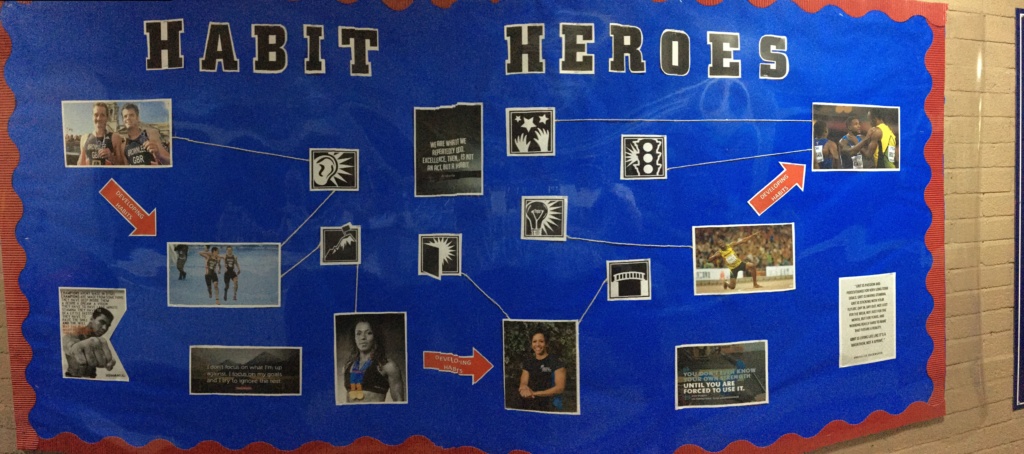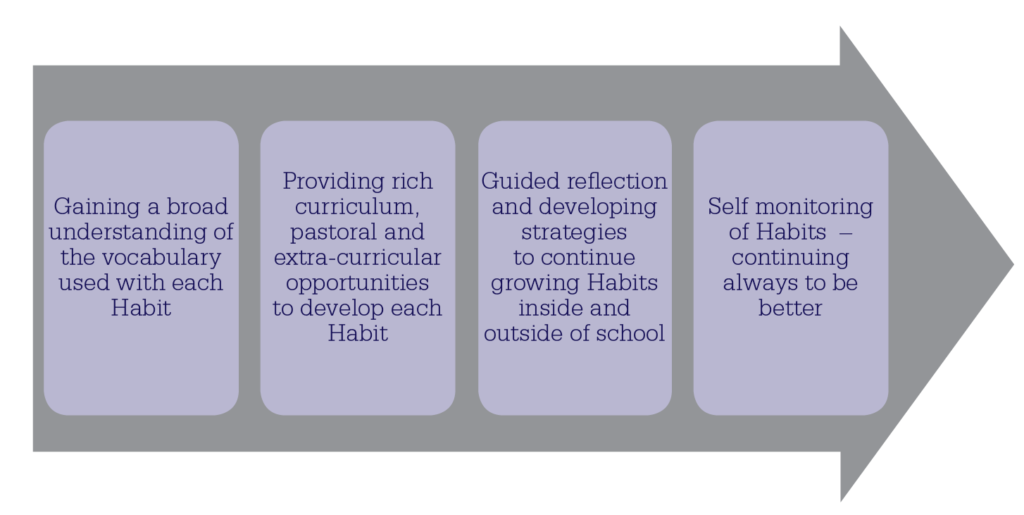
In the field of sport, we often refer to what is known as ‘challenge vs threat’ state. This is the idea that performers need to feel they have the knowledge, resources and external support to take on the challenges that face them. Similarly, in a classroom context, each time a student walks in to a new lesson they make a judgement as to whether they should attempt a task, based on their perceived level of capability (Jones et al., 2009). The goal within the 14 schools that form our Trust is to shift as many students as possible from the ‘what’s the point of me even trying?’ or ‘I can’t do that’ mindset towards the ‘Yes I’ll give that a go’ mindset. Our Trust is composed of fourteen schools, ranging between single sex grammars, mixed high schools and infant schools that span two geographical ‘hubs’ in Medway and Portsmouth. Our secondary schools have seen real improvements in attainment since joining the Trust – on average our Progress 8 score for 2017 was +0.68, and throughout this time we have been keen to promote, not just the retention of knowledge, but also the development of positive learning behaviours that are linked to students’ success more holistically.
In order to do this in a persuasive and relevant way for students at a primary and secondary level, we have engaged with the work of Costa and Kallick (2006) on the Habits of Mind. Habits of Mind are defined as “the characteristics of what intelligent people do when they are confronted with problems, the resolutions to which are not immediately apparent”.
The 16 Habits of Mind
| Habit of Mind | Meaning in our educational context |
| Persistence | Students continue with a task and do not give up at the first hurdle, by using the tools and resources available to them. They seek support from peers to find their own alternative avenues to success if struggling. |
| Managing impulsivity | Students consider different courses of action prior to acting and carefully contemplate the consequences of actions. |
| Striving for accuracy | Students aspire to be exact and master the demands of a task. They carefully use success criteria to self and peer assess. |
| Clarity and precision | Students articulate thoughts accurately when speaking, listening and writing. They consider appropriate use of vocabulary and gesture. |
| Empathy and understanding | Students are aware that not everyone will have the same view as them and they consider alternative perspectives. They are encouraged to actively seek how different perspectives are informed. |
| Skills of interdependence | Students have opportunities to work productively with others in groups to understand and apply content. They learn from others through discussing, supporting and challenging ideas. |
| Wonderment and awe | Teachers are conscious of developing curiosity within their subjects. Actively linking content to relevant real life situations and sharing impressive findings within the subject. |
| Finding humour | Opportunities are provided to be fun and playful with ideas where appropriate. |
| Creating, imagining, innovating | Students strive for enough subject knowledge to produce original ideas in a particular field. |
| Applying past knowledge to new situations | Students are encouraged to consider how past performance accomplishments and previous knowledge could support understanding in a new setting. |
| Thinking flexibly | Encouraging students to challenge viewpoints and appreciate how and why viewpoints can change. |
| Remaining open to continuous learning | Students enjoy learning and are keen to add to knowledge and skills. They are not fearful of not knowing an answer and trying new techniques. |
| Questioning and posing problems | Students ask thoughtful open questions. They trial their own strategies to solve problems. |
| Gathering data using all senses | Providing students with a variety of learning opportunities that do not just focus on the auditory and visual forms of delivery. Students use all senses where appropriate, in order to develop understandings. |
| Metacognition | Students are aware of their own thoughts, feelings and actions. They reflect on their strengths and areas for development and through monitoring, they can modify behaviours. |
| Taking responsible risks | Providing students with opportunities to take calculated risks. Students are prepared to answer questions and give opinions even if they’re not 100% sure. They are confident to move out of their comfort zones. |

We had long felt that those students who were achieving successful outcomes were those who had positive dispositions AND a strong knowledge base. Our question then became: How can we ensure that ‘spongey students’, those who seem to suck up information, become more critical and more independently confident? The staff body initially felt that the Habits were already being developed in tandem with the content and skills within each subject area – however, without formalised methods of tracking, how could we be sure that we were effectively developing these Habits to their full capacity? We therefore attempted to identify a set of flexible criteria to encourage staff and learners to intentionally monitor their progress towards embodying each Habit, while appreciating that the journey is more about getting better, rather than meeting milestones.
The integration of the Habits of Mind in to each school was never intended to be a magic bullet to suddenly make students better citizens or always improve their learning, it was more about making an explicit claim that we valued these Habits and were looking to gradually evolve the current culture to more intentionally appreciate the symbiotic relationship between dispositional development and subject-specific knowledge. After all, there were some students who thought, much like their intelligence, that their habits and behaviours were fixed, and we saw it as our role to challenge some of those existing long-held beliefs by providing our students with meaningful strategies to grow more positive learning dispositions. An example of this is that to develop metacognition, we tell them not to just aim to ‘think about your thinking’, but to actually attempt to monitor and modify what you are doing through reflecting on your strengths and areas for development and develop your own set of effective strategies that support this. Without these strategies, their efforts to develop these Habits could be futile. As teachers, we can provide some strategies for students that are based on our own experiences. For example, for young students developing their skills of interdependence, we can select groupings, provide sentence starters for discussions, etc., but these might not work for everyone and the key is to enable students the opportunity to trial their own strategies in a safe, low-risk space.
The diagram below provides an overview of how we currently integrate the Habits into schools and support students step by step to start and continue their development journey.
An overview of the stages of Habit development within our schools

This diagram is not suggesting that the final box is an end point or an expected outcome – it instead demonstrates the stages we have identified towards getting better, which requires commitment and time, especially when some less desirable Habits are already well engrained.